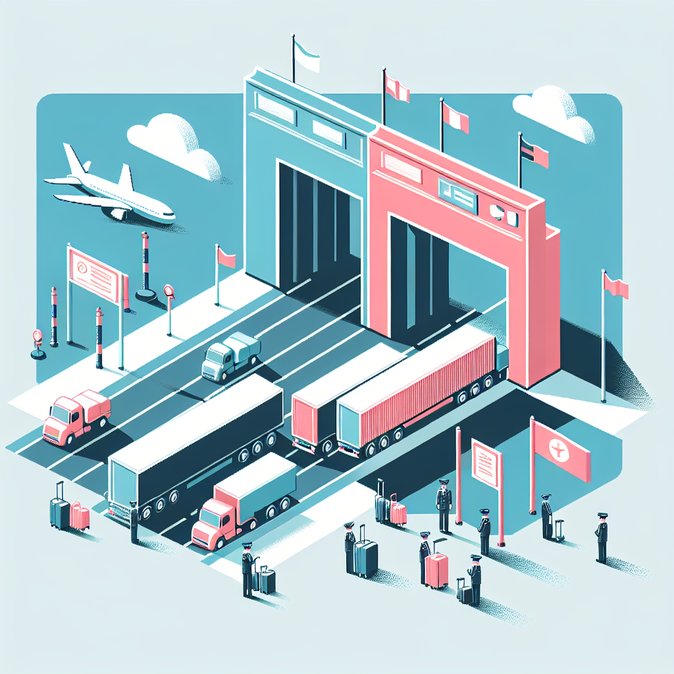
The Polish Ministry of the Interior and Administration confirmed on 14 November that the Kuźnica Białostocka–Bruzgi and Bobrowniki–Bierestowica road checkpoints on the frontier with Belarus will resume operations at 00:01 on Monday, 17 November. The two posts were shuttered in September after large-scale Russian-Belarusian military exercises and repeated air-space incursions prompted Warsaw to seal the border as a preventive security measure.
Re-opening the crossings required a separate ministerial regulation, signed on Friday, which specifies the categories of traffic that will be permitted. Passenger cars may use both checkpoints, while Bobrowniki will also handle EU-, EFTA- and Swiss-registered trucks. Belarus-registered freight traffic, however, remains suspended. Polish officials stressed that "robust physical and electronic barriers" built since 2022 remain in place and that Border Guard units will increase spot checks during the phased re-opening.
![Poland to Reopen Two Belarus Border Crossings on 17 November]()
For businesses in the Podlaskie region the move is a long-awaited breakthrough. Hauliers have faced detours of up to 200 km, pushing up fuel costs and delivery times to Baltic ports and Finland. Local chambers of commerce estimate that the closures cut cross-border trade flows by 40 percent and cost Polish trucking firms roughly PLN 25 million per month. Re-establishing direct east-west corridors should relieve pressure on alternative routes through Lithuania and Latvia and reduce wait-times on the Polish-German frontier, where security checks were intensified in July.
Corporate mobility managers should note that passenger traffic will initially be limited to 6 a.m.–10 p.m. while authorities calibrate new surveillance equipment. Foreign nationals entering Poland for business or work assignments are advised to carry proof of accommodation and insurance, as spot documentation checks have been stepped-up in the wider border zone. Employers relocating staff or shipping goods through the two crossings should monitor daily bulletins from the Border Guard and prepare contingency routings during the first week of operations.
Looking further ahead, the Interior Ministry says the phased re-opening is a pilot that will inform whether Poland can safely restore 24-hour operations and re-admit Belarusian freight carriers in early 2026. Until then, firms relying on just-in-time deliveries should build in extra lead-time and keep drivers briefed on any overnight closures triggered by security alerts.
Re-opening the crossings required a separate ministerial regulation, signed on Friday, which specifies the categories of traffic that will be permitted. Passenger cars may use both checkpoints, while Bobrowniki will also handle EU-, EFTA- and Swiss-registered trucks. Belarus-registered freight traffic, however, remains suspended. Polish officials stressed that "robust physical and electronic barriers" built since 2022 remain in place and that Border Guard units will increase spot checks during the phased re-opening.

For businesses in the Podlaskie region the move is a long-awaited breakthrough. Hauliers have faced detours of up to 200 km, pushing up fuel costs and delivery times to Baltic ports and Finland. Local chambers of commerce estimate that the closures cut cross-border trade flows by 40 percent and cost Polish trucking firms roughly PLN 25 million per month. Re-establishing direct east-west corridors should relieve pressure on alternative routes through Lithuania and Latvia and reduce wait-times on the Polish-German frontier, where security checks were intensified in July.
Corporate mobility managers should note that passenger traffic will initially be limited to 6 a.m.–10 p.m. while authorities calibrate new surveillance equipment. Foreign nationals entering Poland for business or work assignments are advised to carry proof of accommodation and insurance, as spot documentation checks have been stepped-up in the wider border zone. Employers relocating staff or shipping goods through the two crossings should monitor daily bulletins from the Border Guard and prepare contingency routings during the first week of operations.
Looking further ahead, the Interior Ministry says the phased re-opening is a pilot that will inform whether Poland can safely restore 24-hour operations and re-admit Belarusian freight carriers in early 2026. Until then, firms relying on just-in-time deliveries should build in extra lead-time and keep drivers briefed on any overnight closures triggered by security alerts.


